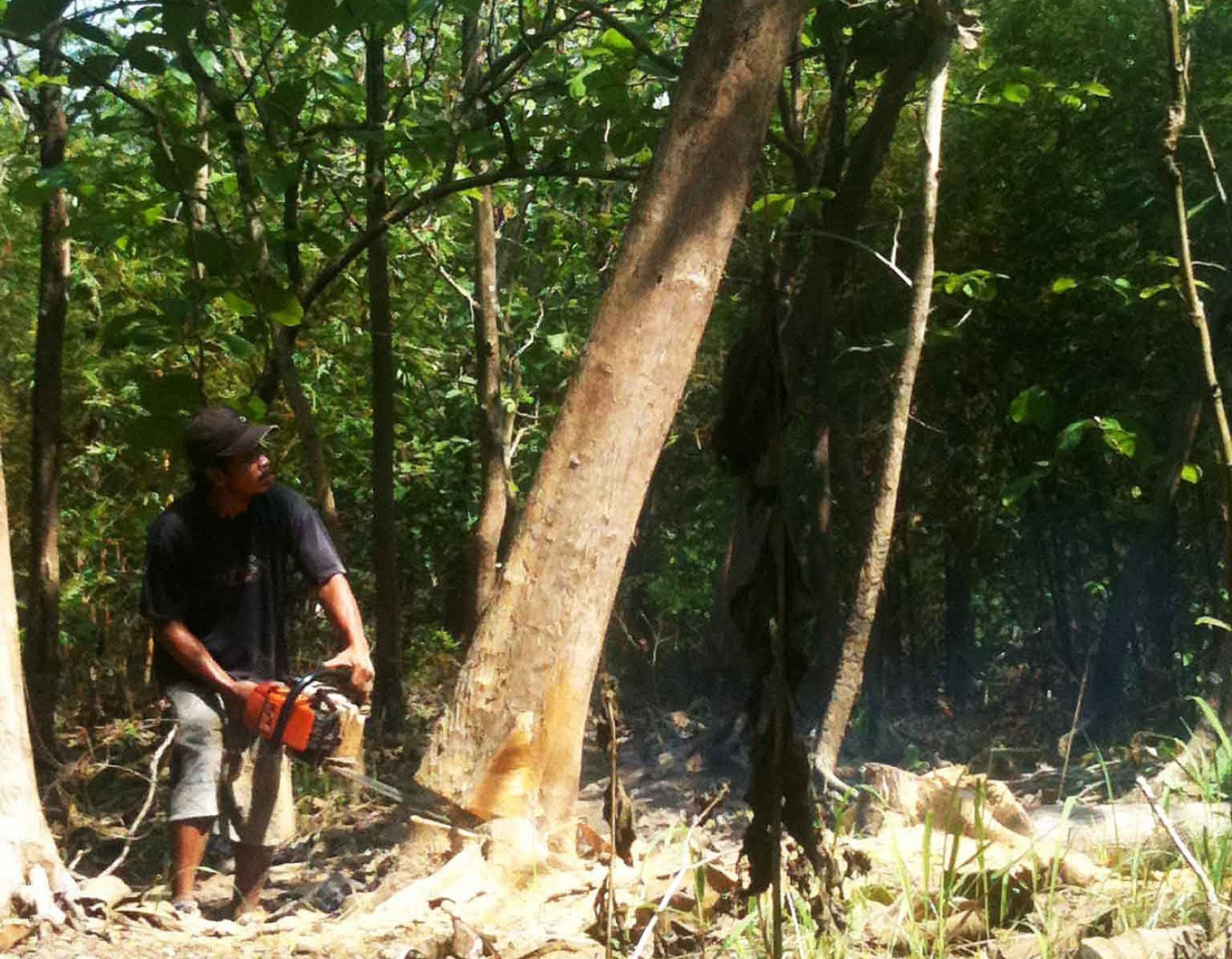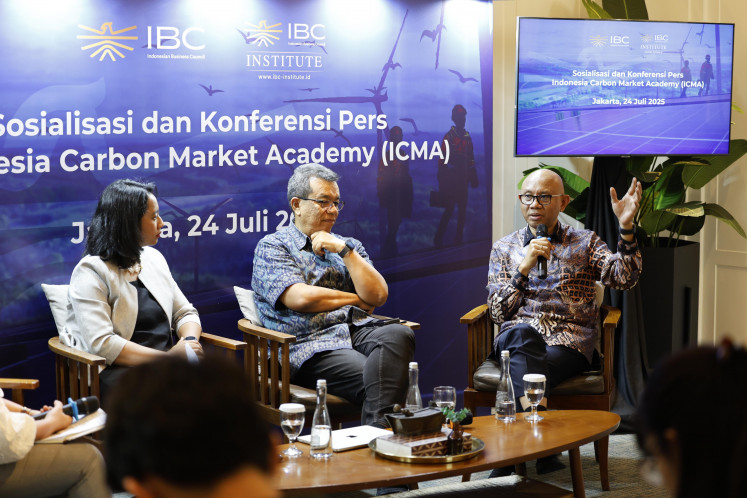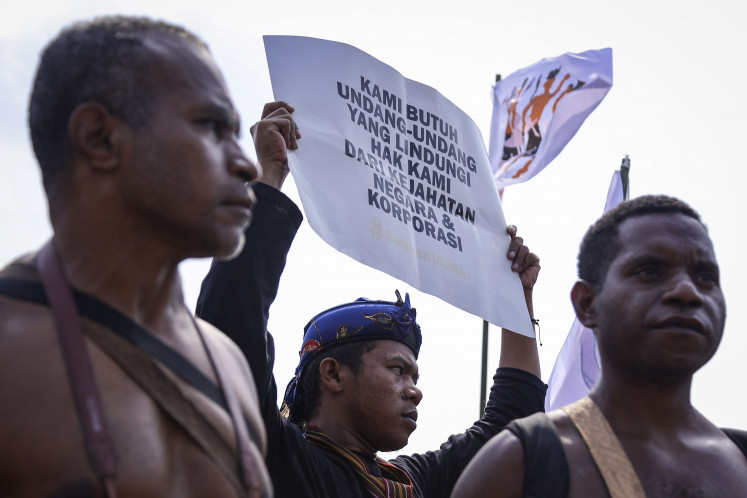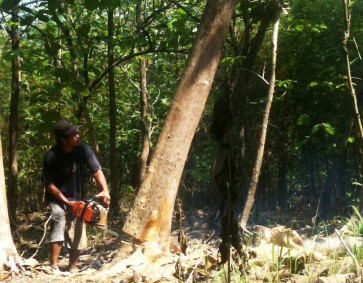Popular Reads
Top Results
Can't find what you're looking for?
View all search resultsPopular Reads
Top Results
Can't find what you're looking for?
View all search resultsAnalysis: Forestry task force formed amid Rp 300t in unpaid palm oil fines
Change text size
Gift Premium Articles
to Anyone
P
resident Prabowo Subianto has signed Presidential Regulation (Perpres) No. 5/2025 to establish a forestry task force tasked with collecting fines from the forestry sector. The move mirrors efforts made under the previous administration to collect penalties from illegal palm oil operations. However, with the Attorney General’s Office (AGO) still investigating alleged corruption involving Rp 300 trillion (US$18.2 billion) in palm oil fines from that period, the formation of the new task force has raised questions about its timing and underlying motives.
The new task force is designed to tackle a range of problems in the forestry sector, such as illegal oil palm plantations and unauthorized mining. Reporting directly to the President, the task force includes representatives from key state institutions, including the AGO, the Development Finance Comptroller (BPKP) and the Forestry Ministry. It also has an advisory board led by Defense Minister Sjafrie Sjamsoeddin, with members such as the Indonesian Military (TNI) chief, the National Police chief and other relevant ministers.
One of the task force’s main responsibilities is collecting fines, similar to those currently under AGO investigation. Prosecutors have named eight suspects from the Forestry Ministry accused of manipulating complex fine calculation methods to cover up embezzlement. These fines, already criticized for enabling companies to "legalize" illegal plantations, have come under further scrutiny due to weak enforcement and poor collection.
In 2023, authorities identified around 3.3 million hectares (ha) of illegal oil palm plantations, which is nearly one-fifth of Indonesia's total plantation area. By early 2024, more than 2,000 companies had been fined for illegal operations, but less than half of the expected payments had been deposited into the state treasury.
Under Article 8, Paragraph 2 of Perpres No. 5/2025, the task force has the authority to impose administrative fines on those cultivating land within forest areas. Fines will vary based on the severity of violations. The task force is also empowered to seize illegally used land, recover assets and take legal action to restore state property in accordance with existing regulations.
However, the mechanisms for calculating fines are currently under review. Moreover, the legal foundation for the fines, Government Regulation (PP) No. 24/2021 on non-tax state revenue, is pending revision. With these regulatory uncertainties and the ongoing AGO investigation, critics have questioned the timing of the task force's formation, calling it premature and confusing.
Further concerns have arisen over the task force's potential use of military forces to reclaim plantations on behalf of the state. Many argue that these illegal plantations exist due to long-standing gaps in state oversight and warn that military involvement reflects a growing trend of militarization under Prabowo’s leadership. Recently, the administration also deployed soldiers to the nation's rice fields to enforce new price ceilings on unhusked rice, fueling concerns over increased military control of natural resources.



















